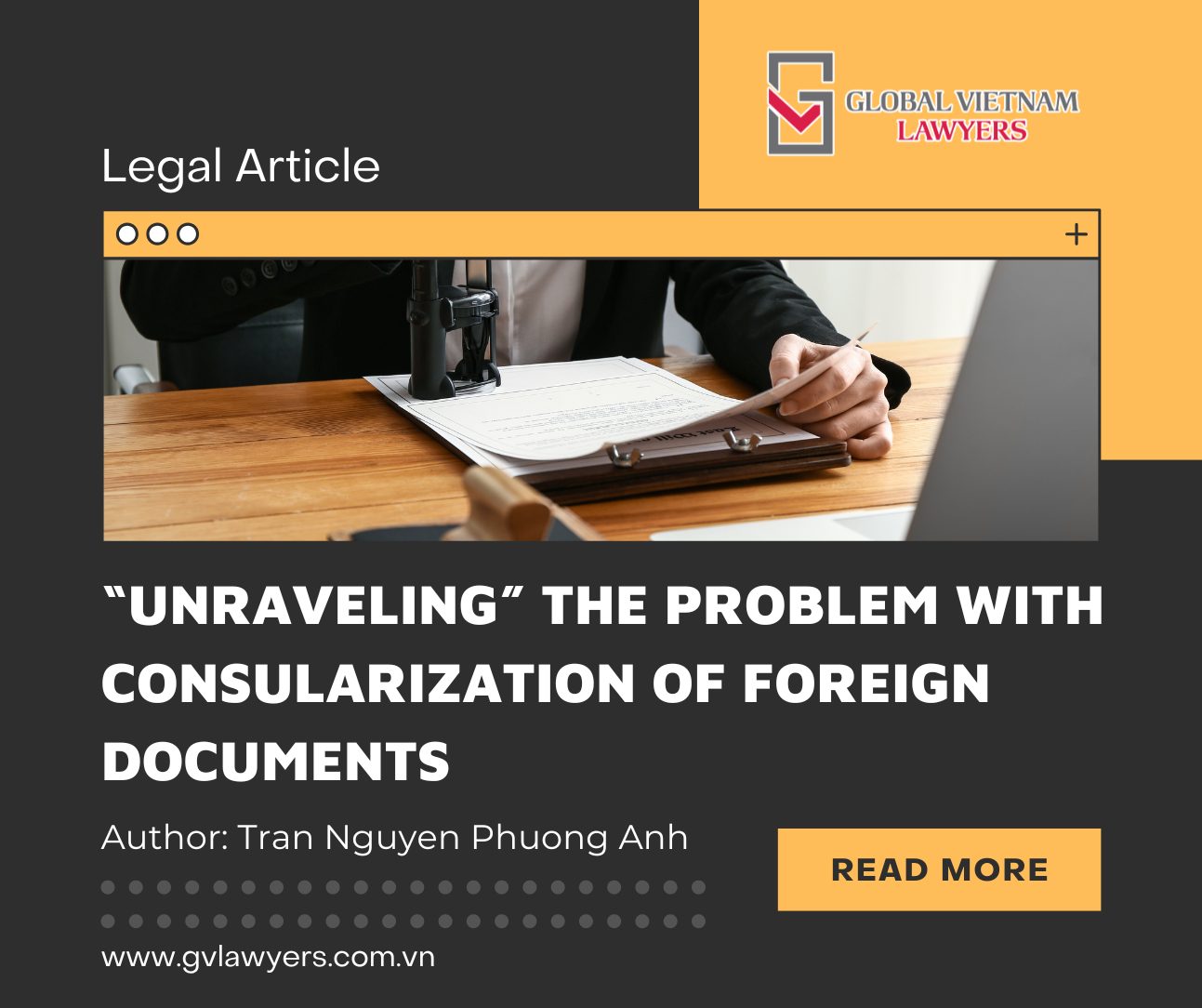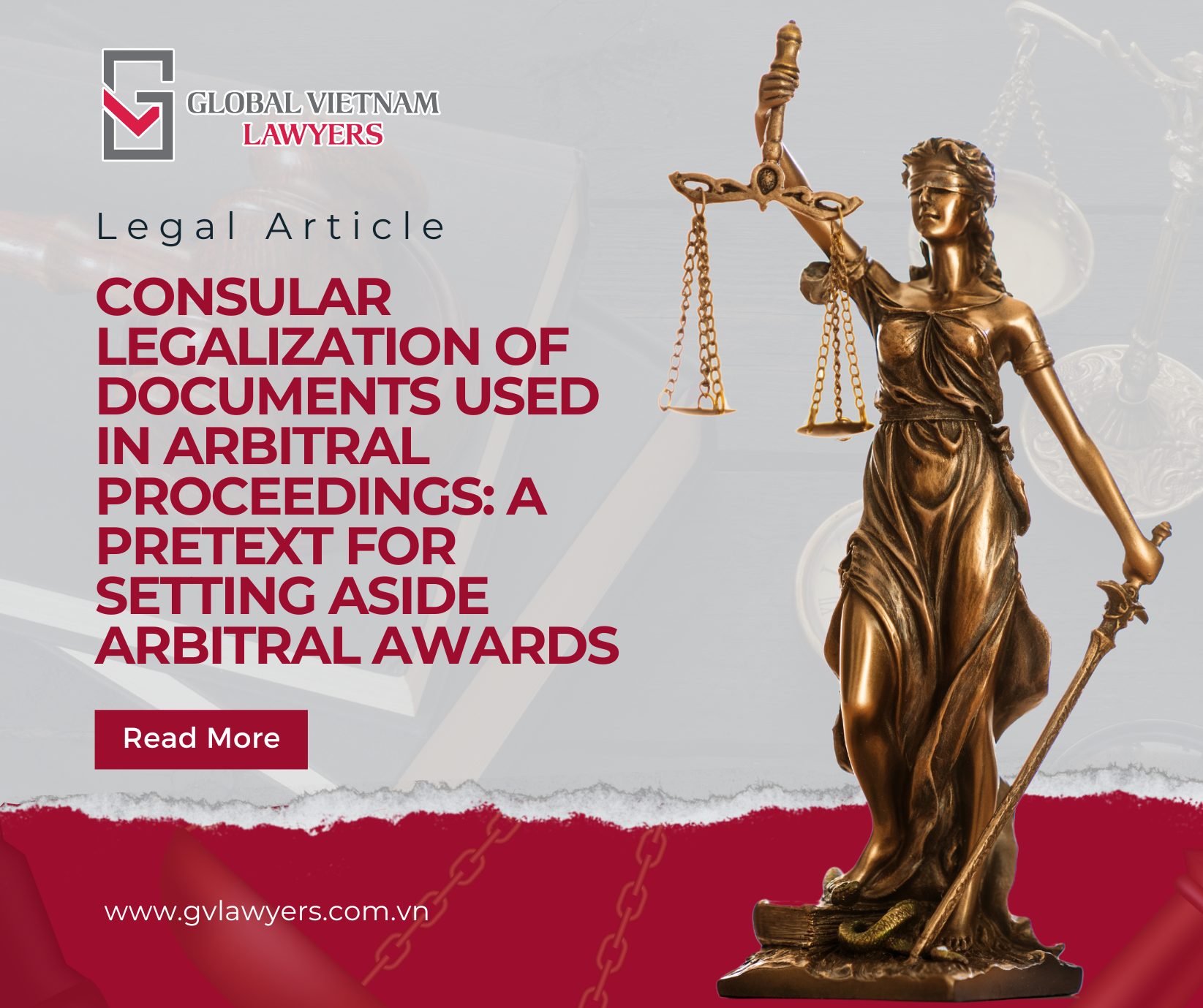GV Lawyers would like to present an article by Mr. Tran Thanh Tung, entitled: “The control committee’s role in a joint stock company” published in Saigon Times on April 23, 2009.
***
This time of year is generally considered the peak time for annual Shareholders’ Meeting in the joint stock companies (JSC). However, in attending some of these meetings, one can see that the Control Committee (CC) does not always seek to the best interests of its investors nor does it always appropriately supervise the operations of the Boards of Management (BOM) and the Boards of Directors (BOD). This article will provide you with some aspects of the CC’s operation in the JSC as allowed by the 2005 Law on Enterprises.
Legal role
Suppose that a JSC is a “state” and the General Assembly of Shareholders (GAS) takes the role of a legislative body which decides the developmental orientations and other important matters of a company while the BOM and the BOD are the executive bodies which manages daily business activities, and CC is a judiciary body which inspects and controls the operations of the BOM and the BOD. Using this metaphor helps us to more clearly understand what the CC’s role is in relationship with the other departments in a JSC, particularly, its role in “restraining counterparts” against the BOM and the BOD. Amongst other reasons, the two main reasons for the existence of CCs are: (i) the complicated process of managing a company and the relationship among its shareholders as well as (ii) the sheer isolation between the owners and direct managers of the JSC.
People often find no distinction between owners and direct managers in a small-scale JSC where shareholders are also managers. In this situation, the General Council of Shareholders (GCS) is also a member of the BOM. However, when a company grows in scale and number of shareholders, the corporate operations and management become increasingly complicated and therefore, a professional management team is needed. As such, a company owner simultaneously acting as its manager is no longer appropriate. It is reasonable when the shareholders, the company’s owners, express more concerns on the company’s management conducted by the BOM and BOD. This is one of the reasons why the CC is required to exist. According to Article 95 of the Law on Enterprises, the CC may be established when a company has either more than 11 individual shareholders or organization shareholders owning more than 50% of the company’s total shares.
With various functions regulated in the Law on Enterprises and the company Charter, the CC shall exercise supervision over the BOM and the BOD (Director or General Director) in terms of corporate management and operations as well as to ensure the reasonableness, lawfulness, trustworthiness and diligence, preparing accounting, statistical and annual and six- months financial reports as well as appraisal of the BOM’s management activities.
As aforesaid, acting as a “judiciary body” in a “miniaturized State”, CCs must be independent enough to supervise the BOM and the BOD. This independence must be established through its establishment and funcional operations.
As regulated in the Law on Enterprises, CCs should be elected and dismissed by the GCS and take responsibity for exercising assigned tasks before the GCS. The CC’s members cannot be a spouse, biological or adoptive father/mother, biological or adoptive child, biological sister/brother of the BOD/BOM’s members or other managers of the company. Simultaneously, CC’s members shall not take charge of corporate management positions, and be not necessarily shareholders or employees of the company. For the purposes of checking corporate accounting books, financial reports, at least one accountant or audit must serve as the CC member.
Through implementing its functions, CCs ensure all decisions that are made by the BOM and the BOD are in accordance with the laws and the resolutions of GCS and seek the maximum corporate benefits and behind- the-scenes actual owners – the corporate shareholders. It is the very role of protecting shareholders and investors that results in a CC coming into being and remaining in existence and operating.
The current status
Recent history has shown that CC has not played out its role of protecting shareholders and investors. Therefore, CC’s “inferiority” has put them at risk of bearing huge damages.
In reading CCs’ reports in general shareholders’ meetings, shareholders feel that these reports are merely duplicated from the BOMs’ and BODs’ ones. The main content primarily “applauds” the BOM and the BOD and is often characterized by a lack of useful information for shareholders to seek hidden aspects from the reports of the BOM and the BOD. In some cases, the matters, that are being included in CCs’ reports were “signed off on” by the BOM and BOD in advance during the preparatory meeting. Therefore, at the shareholders’ meeting, the CCs’ role is essentially to fill all remaining seats.
Taking that into account, the choices of a number of BOMs and BODs has recently resulted in serious damages for its shareholders with almost no warning by the CC until discovered. Needless to say, as the owners and CC electors, the shareholders have room for complaint as to the CC’s role and performance of supervision and checking over the company’s activities.
Although the CC is authorized to exercise the right to call Shareholders in the event that the BOM does not do so or in case of a breach related to managament duties. But in reality, how often does the CC carry out such right?!
These are just some of the issues that are plaguing the institution of CCs in Vietnam today.
Causes
You can list here the “myriad” causes leading to the CC’s “virtual” role:
- Cover-up of BOD and BOM.
This is the innate cause in the relationship between BOD, BOM and CC where the CC’s role is to control the BOD and BOM’s activities. Then the BOD and BOM naturally do not take any liking towards CC because they cannot decide anything in the manner of “acting like a supreme being in disrespect of anyone” in presence of CC and be always haunted with a fear that CC will “blow its whistle”. Thus, BOD and BOM often try to stay away from CC. This has made CC’s role ineffective.
- Unawareness of CC’s role.
It is the very shareholders that founded CC in their interests, but they at times are properly unaware of CC’s role. In fact, the general shareholders’ meeting is summoned up only once or twice in a year and every session lasts in one day; so, there occurs the case where the time is so pressed that the general shareholders’ meeting can only elect CC and leave enactment of the CC’s operation rules to the BOD chairman. He/She will automatically restrict CC’s competence at a maximum for the purpose of empowering himself/herself. Even in certain companies, shareholders agree BOD will nominate CC members, and inevitably, BOD will appoint “henchman” to scale up their power.
Having said all that, the last cause is that BOD and BOM sometimes do not have a good command of CC’s role because they treat CC as any other department in their company. Even CC also does not grasp its role and authority. Therefore, CC’s existence is much characterized by formality.
- Independence in CC member’s role.
CC membership often features a corporate staffer, which seems to stem from the assumed viewpoint of the aforesaid CC’s virtual role and formal existence. As prescribed by the laws, CC member shall not hold a management role, that is to say, such member does not serve on BOM or take charge of his/her job as a department (deputy) manager (if the company charter provides that such title is a management role in a company). This really signifies that CC member will be only an ordinary worker, a low-rank employee in such company. As a controller, he/she needs to work independently with BOD and BOM while, as an employee, he/she will be under management of BOD and BOM. A simple question is whether CC can control corporate operations independently in such situation. It is the very conflict between the two type of roles that put CC member under much strain and normally, he/she is inclined to elect the employee’s role because he/she enjoys monthly salary from the company anyway.
Collusion between CC and management members serving on BOD or BOM.
CC’s role not yet exalted by the laws.
As stipulated by the Law on Enterprises, CC-enacted documents regarding control and supervision only amount to a warning. Even in finding BOD or BOM acts in breach of corporate management obligations, CC is only entitled to demand a cease of violations and a consequential remedy. Internally, CC has no right to dismiss employees in case of their violation. Externally, the reality in Vietnam has shown that any state agencies or other third parties only pay attention to the person who take the role of a legal representative for a company, not the one who is a CC member or head for such company.
The results of CC’s control operations are recorded in its reports that will be presented to the GCS at every session. The long period between sessions make CC’s reports lose their timely events. At the same time, their contents are limited to notice and advice on certain matters related to GCS. In addition, the current regulations on accounting policy, JSC’s annual statements submitted to tax agencies only include balance sheet, business operations statement, cash flows statement and notes to financial statement. As for the stipulation on disclosing information about a public company, the detailed disclosures will not go beyond those aforesaid documents. As such, CC is not forced to submit reports to its management agency or disclose the regulated information. As aforementioned, CC’s report is a material document of the same significance as the financial statements, which provides investors and state management bodies with a corporate overview that is perceived from the hidden aspects of the financial statements.
Therefore, it is necessary to consider requesting JSC, especially public companies to disclose CC’s reports together with financial statements.
In fact, the announcement of CC’s internal control report is not something novel throughout the world. Sarbanes-Oxley Act, the well-known U.S. Act, prescribed that the internal control report is one compulsory component of the corporate financial statements. At present, many multinational companies in Vietnam have effectively maintained CC’s role in internal control operations. And such internal control report must represent the proper management, establishment and maintenance of internal control process along with processes of preparing financial statements plus reviews on internal control effectiveness. Coming into existence in 2002 following the collapse of the top national companies like Enron, WorldCom and a series of financial scandals by certain well-known companies, Sarbanes-Oxley Act defined CC’s new role and position, thereby providing for an effective protection for investors. This should also be a model for Vietnam to study and apply because no one can assert that there will be no potential collapse from the loose management of internal control in JSCs in Vietnam.
Conclusion
Baron Acton (1834-1902), an English historian, got famed with one saying that “Power tends to corrupt, absolute power corrupts absolutely”. If all power in JSC is focused on BOD and BOM, no one can assure no power abuse from them and at that point, shareholders – real owners of such company will get out of protection. CC is an appropriate mechanism for shareholders to protect themselves. To do so, CC needs to work in a clearly-adjusted legal framework in conjunction with the fact that shareholders must grasp and use CC’s role in a proper and smart manner. Besides, once relied and empowered, CC shall have enough capacity and grit to accomplish its duties, having reports characterized by independence and accuracy. That is the best way for shareholders to protect their own benefits and for the society to avoid losses from the fall of colossal JSCs as has ever occurred in the US.









